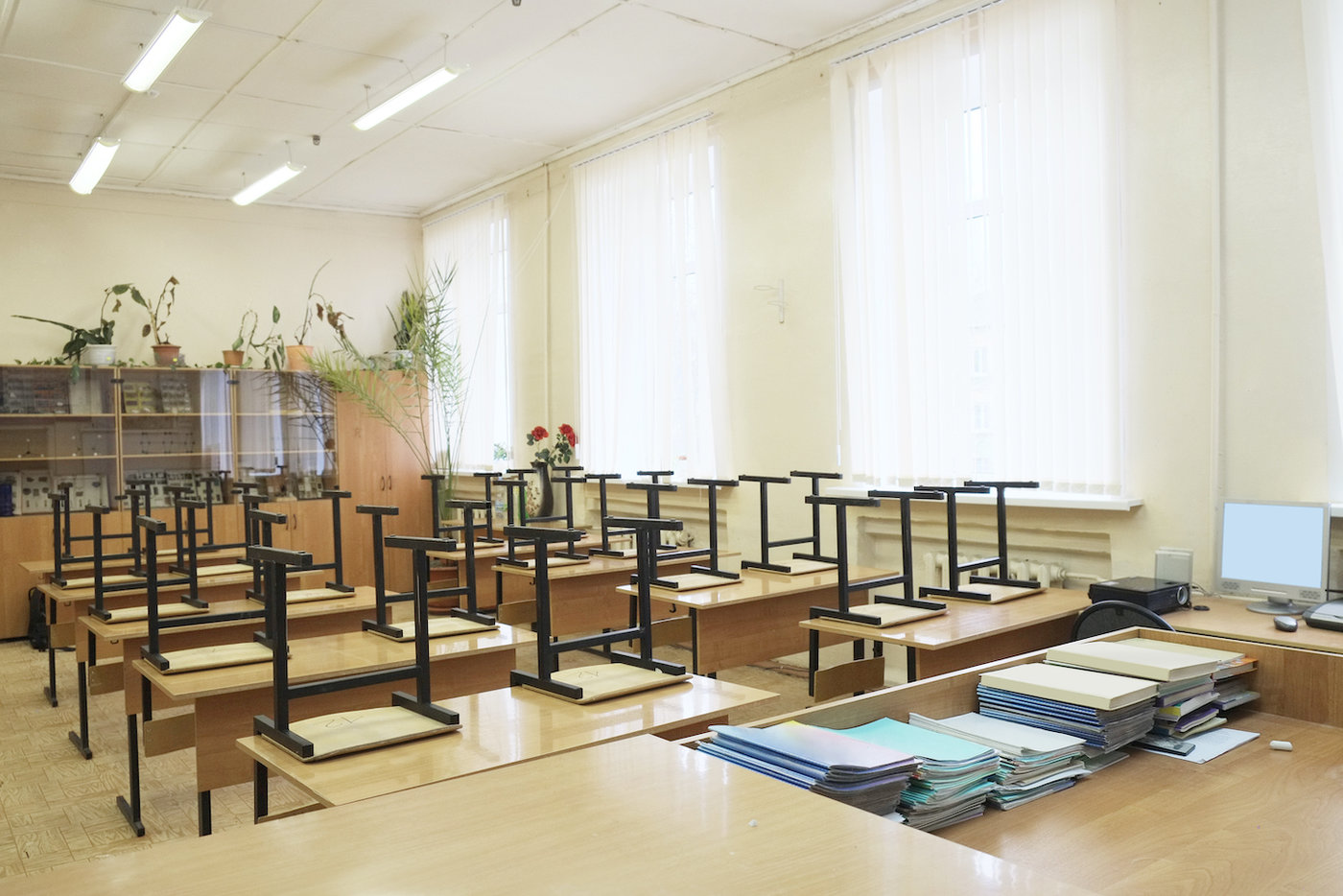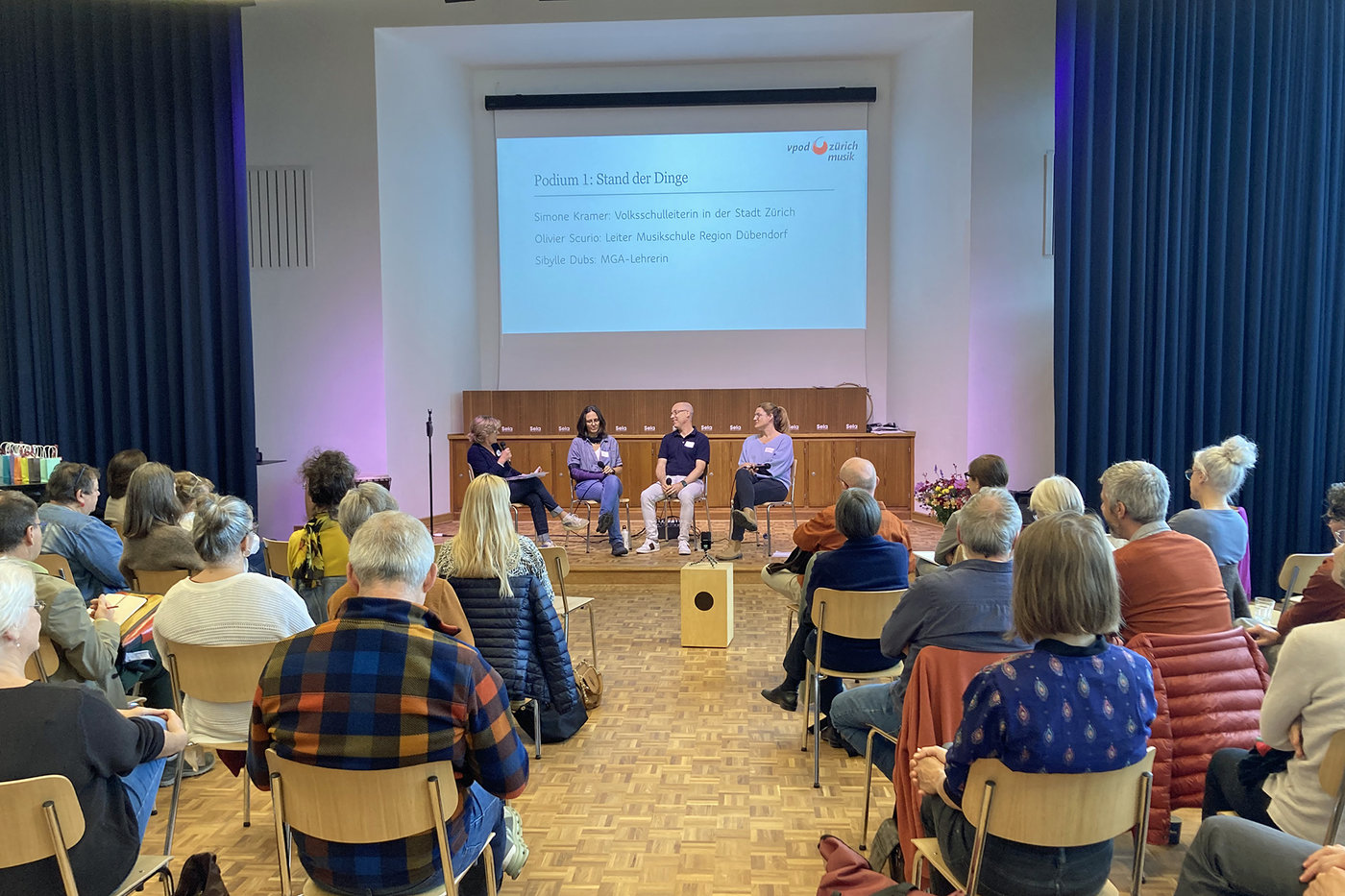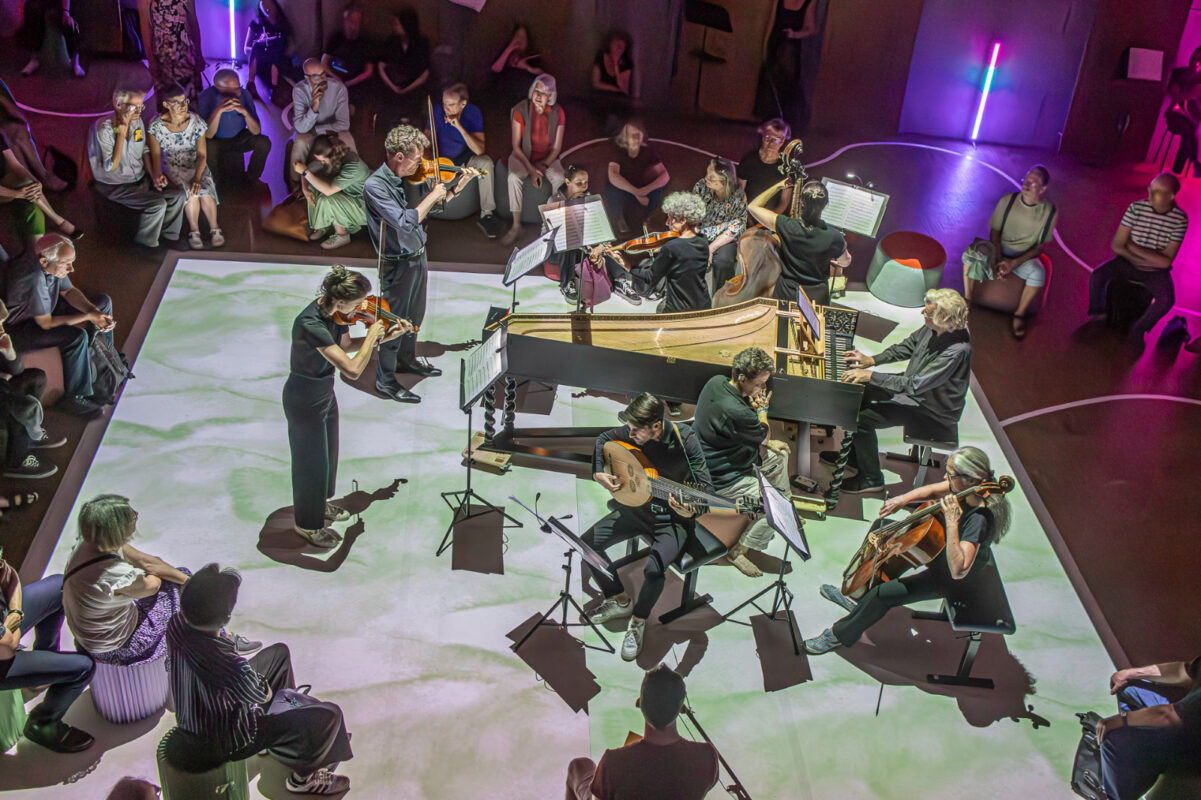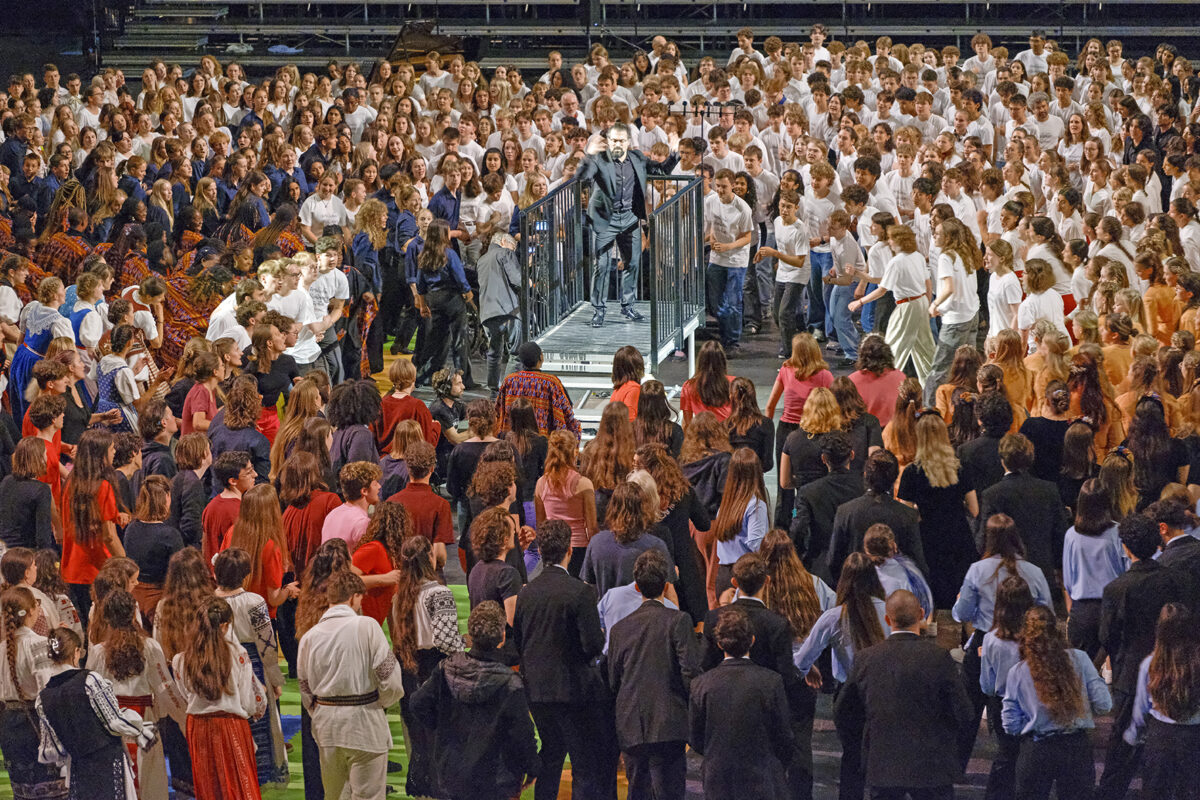Fear for and of music lessons
In many places in the canton of Zurich, music is no longer taught as a subject at elementary school. Causes and solutions were discussed.

Music lessons at elementary school are in a bad way. Why is that? How can the school subject of music be suitably revitalized? The public service union VPOD Zurich/Music organized a public and well-attended panel discussion on this topic on 23 September, which was moderated by Esther Girsberger.
Maja De Luca from the VPOD Zurich.music board began by saying that the federal government and cantons are committed to high-quality music lessons. The canton of Zurich has a music school law, and thanks to the popular initiative jugend + musik (youth + music), the broad promotion of music is enshrined in Article 67a of the Federal Constitution. In Curriculum 21, music lessons at elementary school have been significantly upgraded. It stipulates two weekly music lessons from year 1 to 6.
Why is that?
But today, ten years after the introduction of the constitutional article, the reality in the canton of Zurich is sobering. There is indeed a "basic musical education" in the lower grades of elementary school. However, this is taught by a specialist teacher and is voluntary; it is not included in Curriculum 21. Later on, music lessons depend on the teacher. For some, the subject of music is important and they teach it with corresponding commitment. Others do not, and their music lessons hardly take place at all. No one monitors this. What's more, music is no longer a compulsory subject at the University of Teacher Education; it is offered on a voluntary basis. Very few students choose music as an art subject.
In response to Esther Girsberger's question about how bad it really is, basic music teacher Sibylle Dubs said: "It's bad. The reason for this is usually individual: the teachers are often afraid of teaching music. They don't have the confidence to do it, especially not singing. This often has to do with childhood trauma. Many were told they couldn't sing and had no voice."
Are there ways out?
For Simone Kramer, head of a primary school in the city of Zurich, the quality of music lessons stands and falls with the school management. As she herself had a musical childhood, music is an important part of education for her. So, in collaboration with the music school, a day school with a musical profile was created. In concrete terms, this means that the children should have intensive contact with music at every level: basic musical education, choir singing and class music-making. There are two weekly lessons for this. In Year 5 and 6, they can join a choir or band. And if a child likes their instrument, they can continue with it.
The idea of the elementary school teachers taking part in these music lessons is an interesting one. As Kramer's elementary school is located opposite the Toni-Areal, she helps herself with music students. It soon became clear that it was better to bring in artistic people for music lessons. The ZHdK offers a corresponding course, the BA in Music and Movement. However, this course does not have a secure field of work. Although there are jobs, the local authorities decide on the funding to fill such positions. Couldn't these specialist teachers trained at the ZHdK teach at elementary school?
What is already possible in other cantons seems a long way off in the canton of Zurich. Myriam Ziegler, Head of the Department of Primary Education, clarified the political situation: "When the universities of applied sciences developed around 20 years ago, there was a discussion as to whether or not specialist teachers should be admitted to elementary school. The conclusion was that this was not wanted in order to retain the class teacher as a reference person." Today, a maximum of 3 specialist teachers are permitted at primary level.
What puts the brakes on? The finances!
Where can solutions be found? The ZHdK is currently discussing a further education course in classroom music-making for primary school teachers. According to Bernhard Suter, didactics lecturer at the PH Zurich, better cooperation between music and elementary school would also be important, but this would require more funding. In his opinion, the following option would be promising: "A person responsible for music could be employed in a school. This person could then be called in by the class teachers for music lessons." That sounds reasonable, it would just have to be done and properly remunerated.

Version dated October 23, 2023








